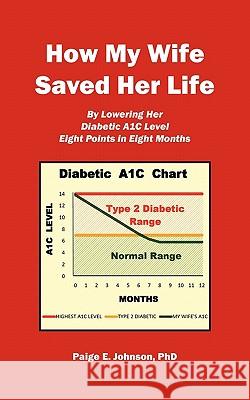How My Wife Saved Her Life: By Lowering Her Diabetic A1c Level 8 Points in 8 Months » książka
How My Wife Saved Her Life: By Lowering Her Diabetic A1c Level 8 Points in 8 Months
ISBN-13: 9781426954481 / Angielski / Miękka / 2011 / 52 str.
At the age of fifty-one, Sharon Johnson knew something was wrong. She began to gain weight, had a tremendous thirst, and became gravely ill. The doctor checked her blood sugar and found that it was abnormally high: on a scale of 0-14, her A1C level was a 13.8. Her doctor diagnosed her as a Type 2 diabetic, and Sharon realized she had to make some major changes in her life. With the help of her husband, Sharon began researching diabetes and came up with a six-step approach to managing this potentially deadly disease. These steps include - setting priorities; - hydrating your body; - finding the right medications; - exercising; - managing your diet; - getting adequate sleep. By following these lifestyle changes over the next eight months, Sharon not only lowered her A1C level from 13.8 to 5.8 and maintained it, but also reduced her daily medications levels by more than 50 percent. In addition, she lost weight, lowered her cholesterol, and had more energy. Full of helpful information and solid advice, How My Wife Saved Her Life is one woman's story of how she took charge of her diabetes and saved her life. How My Wife Saved her Life by Paige E. Johnson, PhD. Trafford Publishingreviewed by Lori Lucero"Her priority is that diabetes will not defeat her. Will it defeat you?" This book was authored by the husband of a woman who almost died from type-II diabetes. He describes her struggle and provides advice for other diabetics, as well as a warning for those not yet afflicted with the disease. Johnson's wife, Sharon, was only fifty-one years old when she was diagnosed with type-II diabetes. Indeed, she became gravely ill, with a near-lethal blood sugar level, before her doctors arrived at that diagnosis. However, Sharon dramatically lowered her blood-sugar level and improved her general health by making certain lifestyle changes. Johnson organizes these lifestyle modifications into a six step approach beneficial to not only diabetics but anyone wanting to improve their general health. In the section on diet management, there is a sample meal plan. There is a great deal of information out about diabetes. Some of this information presented in this book is available through many sources (i.e., suggestions such as altering one's diet and getting enough exercise). However, the six steps are nicely organized and easy to follow. Furthermore, Johnson has been able to observe first-hand how these various modifications affected and continue to affect his wife. For example, he mentions that if his wife has missed exercising for several days, he notices a decline in her physical health and mental outlook. Also, he provides simple, clear explanations of the medical aspects of the disease, such as explaining what it means to have high blood sugar and what it will do to one's body in the long run. There were a few editing issues, such as a word being left out, minor typos, awkward sentences, and punctuation errors. A reference list would have been a nice addition to this book. Overall, though, it is a helpful guide, especially for newly-diagnosed diabetics.











